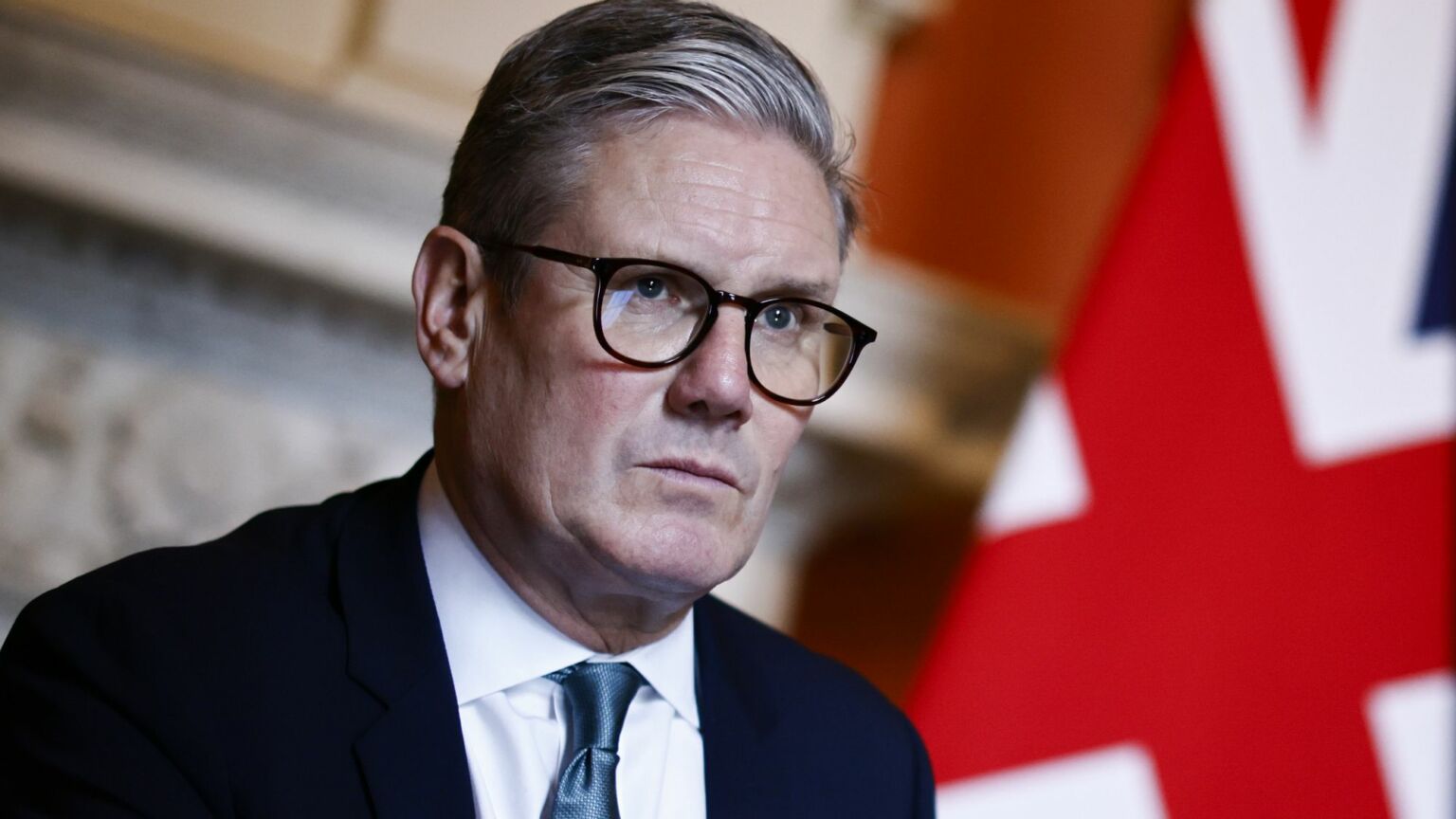Starmer’s performative crackdown on the Corbynites
The Labour leader is keen to show off his authority over his party – but to what political end?

Want to read spiked ad-free? Become a spiked supporter.
Earlier this week, we witnessed UK prime minister Keir Starmer brutally crush a rebellion within his own party. Seven Labour MPs – Rebecca Long-Bailey, Apsana Begum, Richard Burgon, Ian Byrne, Imran Hussain, John McDonnell and Zarah Sultana – have had the whip suspended for six months, after they voted against the government to scrap the two-child benefit cap.
On Tuesday, the SNP put forward a motion to add scrapping the cap to the government’s legislative programme, as set out in the King’s Speech. The Conservative policy, which prevents parents from claiming universal credit or child tax credits for any more than two children, is widely seen even by Labour moderates as mean-spirited. But chancellor Rachel Reeves says that the cost of removing the cap would simply be too high.
Those Labour MPs who voted for the SNP’s amendment and against the party line made up the core of the Socialist Campaign Group, Labour’s left wing. They must have hoped that their rebel vote would have been tolerated or, at least, dealt with less harshly. But in this first test of strength of his new government, Starmer made it clear he will not tolerate dissent.
On the face of things, it might seem a bit thin-skinned on Starmer’s part to suspend the rebels. After all, he had a majority of 158 seats in parliament (down to 151 since the suspensions). Usually, a government will only remove the whip if it is facing a vote of no confidence.
It looks like Starmer was pleased to find an excuse to kick out his left-wing critics. He is continuing the approach that saw him stop left-wingers Jeremy Corbyn, Lloyd Russell-Moyle and Faiza Shaheen from standing for Labour in the recent General Election.
Those on Labour’s left may think Starmer is overreacting, but they are guilty of overestimating their bargaining power. The left-wingers, remember, were in charge of the party until Starmer took over in 2020 and have had a hard time reconciling to the fact that they are out of power.
Since Corbyn resigned as leader, many left-wing activists have either left the party or have been expelled for their ‘disloyalty’. Many defected to the Green Party, helping to increase its representation in parliament from one MP to four.
Corbyn also successfully ran as an independent and defeated the official Labour candidate in Islington North. Elsewhere, in Leicester, Dewsbury, Blackburn and Birmingham, the Labour left gave tacit support to the independent Muslim candidates running on single-issue pro-Palestine platforms – who then went on to unseat Labour MPs.
Like the SNP, the independents (including Corbyn) and the Greens were all vocal in challenging Starmer – or ‘Sir Kid Starver’, as they call him – over the benefit cap.
In the long run, it is probably a good thing that the Corbynite left follows the former leader’s example and breaks with Starmer’s Labour Party, challenging it at the polls. It is better that their differences are set out for the public to judge, rather than fought over in committee rooms.
Unfortunately, we are unlikely to learn anything about what each faction actually believes from this episode. The left-wingers chose a soft issue for a rebellion. The Labour frontbench insists the only disagreement is over the best way to help poorer families.
Meanwhile, the 12 MPs that form the ‘independent opposition’ are an awkward and disparate coalition. Corbyn, by standing against the official Labour candidate, has burned his bridges with the party. But will those newly suspended MPs be so willing to do the same? It is not clear that John McDonnell, for example, is ready to leave the party that has been his home for nearly half a century. We will see whether the suspended MPs embrace Corbyn’s mooted ‘Rebel Alliance’ or keep their heads down, hoping for re-admittance to Labour.
It also remains to be seen whether the four so-called Gaza independents – Shockat Adam, Adnan Hussain, Ayoub Khan and Iqbal Mohamed – are more interested in socialism or in Islamic sectarianism, and whether that could represent an insurmountable hurdle to forming an opportunistic alliance with the suspended Labour MPs.
Starmer hopes that the suspensions will show his determination to crack down on organised disloyalty. But that won’t be much use if he can’t set out a coherent political programme that can undermine his critics. Only time will tell if Starmer can sustain his Corbynite crackdown in the long-run.
James Heartfield’s latest book is Britain’s Empires: A History, 1600-2020, published by Anthem Press.
Picture by: Getty.
Who funds spiked? You do
We are funded by you. And in this era of cancel culture and advertiser boycotts, we rely on your donations more than ever. Seventy per cent of our revenue comes from our readers’ donations – the vast majority giving just £5 per month. If you make a regular donation – of £5 a month or £50 a year – you can become a and enjoy:
–Ad-free reading
–Exclusive events
–Access to our comments section
It’s the best way to keep spiked going – and growing. Thank you!









Comments
Want to join the conversation?
Only spiked supporters and patrons, who donate regularly to us, can comment on our articles.